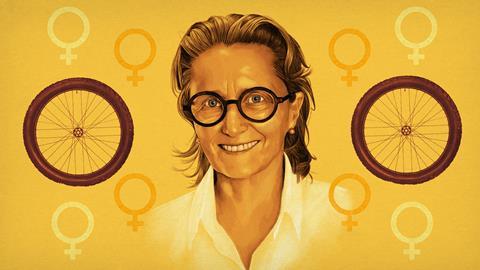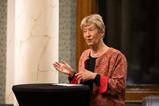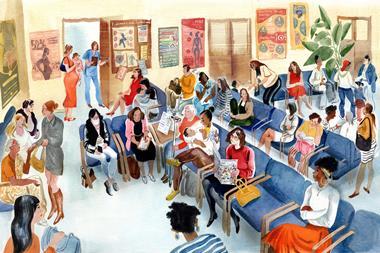The pioneering global health researcher on the importance of including women in medical research, face-to-face networking and kindness

Robyn Norton has had a long-standing commitment to improving the health of women and girls and has published widely on the topic. She is one of the two founding directors of The George Institute for Global Health; she co-established its Women’s Health Program, and is one of the principal investigators on the Medical Science Sex and Gender Equity (Message) initiative in the UK. She is also professor of public health in the Faculty of Medicine at the University of South Wales, in Sydney and emeritus professor of global health in the Faculty of Medicine at Imperial College London.
At the time that I went to university there was a renewed interest in women’s equality and women’s health – a book came out by the Boston Women’s Health Collective which was really influential in raising the profile of women’s health issues and piqued my interest in women’s health.
In my early days, like a lot of New Zealanders, I moved from New Zealand to Australia, and there I got involved in women’s equality issues. At that time, I debated whether I should get involved in politics. Dare I say it, when I moved to the UK and joined the Labour party, I thought, nah, I’m not interested in party politics – I’m interested in politics across issues.
My biggest achievement is establishing and growing The George Institute for Global Health. There were two of us who established The George Institute in 1999, and it’s now grown to be a globally recognised organisation. I’m super proud of what we’ve managed to achieve over 25 years.
I started to get really involved in women’s health as a result of producing a policy report for the University of Oxford in 2016 that was focused on the need for a new global agenda on women’s health that moved our understanding away from just a focus on women’s sexual and reproductive health, to consider all the conditions that impact women.
The low hanging fruit was that if we wanted to consider women’s health across the life course, we needed to make sure that women were included in medical research and start to analyse data separately for men and women to understand if there were differences in what we might do about improving health for both men and women.
We’re trying to produce good science that enables us to improve people’s health
If we want to do good science, we need to ensure that our science is relevant to everyone who’s involved; ensuring that all voices are heard and all voices are included.
As an academic, running a medical research Institute, funding is always a huge challenge; being able to bring in the money and keeping people’s spirits up all the time when they don’t get funded. It’s not a challenge convincing people about the importance of the work we’ve been doing; it’s the challenge constantly of going out to get money.
I spend time in both the UK and Australia, and I like working in both countries. There’s something about meeting people face to face and talking through stuff which is just, to me, so important. I have great people I work with in both countries, and that’s the wonderful thing – that people who are working in the space are so motivated.
I’ve always encouraged PhD students to engage, network and collaborate. You can engage with professional organisations and through them you start to meet a whole lot of people and your world is opened beyond the narrow world in which you work. I look at people that I met when I was in my 20s and 30s who are now in all sorts of influential positions; I wouldn’t have had that network if I didn’t start reaching out at an early time in my career.
What’s happening in the US is really quite disturbing – the way in which the medical research sector and the academic community are being asked to really roll back their inclusivity of all the populations that we as scientists, we as people who want to improve health, want to include. The challenge is to make sure we support those who are trying to bring some sanity into the conversations there and that what’s happening in other parts of the world doesn’t mirror what’s happening under the Trump administration, because that is a real concern.
In conversations I’ve been having with so many people of late there’s a strong view that we must continue doing what we’re doing; we’re trying to produce good science that enables us to improve people’s health, that’s our overriding goal.
We need a world of kindness, integrity and openness. Some of the people who have been celebrating the recent UK Supreme Court decision [on the definition of a woman] are not coming at it from my perspective, from the perspective of kindness, and that’s hard. [But] I love working with lots of people and listening to people’s views and figuring out, how do we work together?
I stepped down as the chief executive of The George Institute two years ago, now I choose to do the things that I’m passionate about and work with people who I really like and I just love it.
I like to stay fit. I do a lot of biking – it tends to be indoor biking because of the heat in Australia and cold weather in the UK! I also love music, and I’m very fortunate that I can support music; I love a lot of the New Zealand artists – Nadia Reid makes beautiful music.

















No comments yet